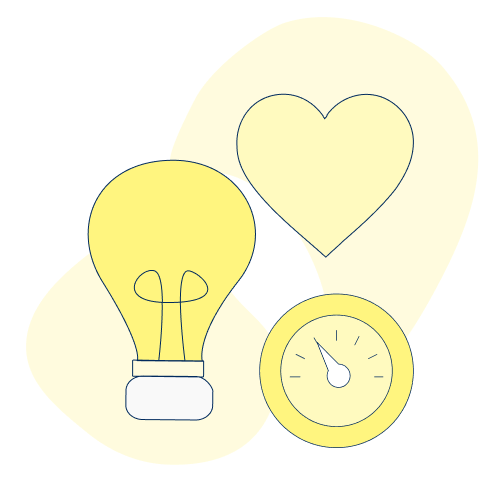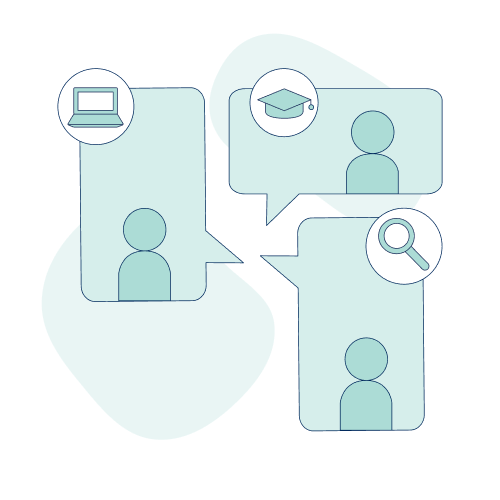
When submitting work for feedback, it can feel like “conventional” expectations always demand complete, polished submissions. Cheryl reflects on how taking a more iterative approach helped her build confidence, closer relationships, and stronger finished work.
Written by Cheryl Nong, Research Coordinator, Honours Bachelor of Science, Psychology and Neuroscience Double Major
First Time’s the Charm?
In fall 2020, at the start of my second year, I took a course that required several major written assignments. Frustratingly, the assignment guidelines seemed too vague for me to fully understand the task. Even though I understood the material, I felt afraid that I’d accidentally miss some secret, hidden part of the assignment and do poorly as a result.

In the haze of the early pandemic, it felt impossible to get any clarification. The professor felt like a distant figure who only appeared to post weekly lectures before disappearing again. Everyone else on the discussion boards was just as confused as me. And with the huge class size of over a thousand students, I was hesitant to reach out to the TAs because they always seemed too busy helping others.
I felt as though I had very little guidance, which only encouraged my procrastination. How could I start if I barely understood what I was supposed to do? Every time an assignment due date approached, I remember typing furiously on my living room floor, just a few hours before the deadline. I’d start after lunch and scarf down a half-hearted snack sometime after the sun went down, and then barely put my laptop down until I hit “submit” with shaking hands around 11:58pm.
As soon as I was done, I’d do my best to put the assignment out of my mind and go straight to bed. Since I had no idea what to expect in terms of feedback, I would effectively shut my eyes and hold my breath for a few weeks. I wouldn’t get to release that breath until the dreaded sound of my Outlook notification alerted me that the grade had been posted.
Evidently, my assumptions about the professor’s expectations for the assignments were good enough that I passed the class, and I happily left behind the stress and confusion of those long evenings. As I progressed further into my degree, I found more support structured into my classes; and as my projects grew more complex, more support became available.
Feedback Along the Way
In my final year of undergrad, I received my most daunting task yet: to research and write an entire 20-page textbook chapter on a historically under-researched topic. After slogging through pages of primary literature on a hard-to-find topic, we would then need to translate those findings into plain language for a lay audience. I found myself dreading the late nights I’d need to finish researching and writing the chapter before the deadline.
Instead, I was pleasantly surprised to find that my professor would specifically reward us for starting early: if we submitted an outline in the first month of the class, we could offload a significant amount of the final paper’s weight into what was effectively a completion grade.

Furthermore, the course TA held sessions demonstrating how to track down primary sources for our paper. After attending one of her office hours, I found out that the subject I chose was the focus of her graduate research. She pointed me towards some papers she recently read as strong examples for my assignment.
When the end of the semester rolled around, I braced myself to enter crunch mode—and realized that there was no need. I already had the substance of my chapter prepared in the outline, and my TA offered thoughtful feedback and some new questions to consider as I started work. Completing the assignment was a matter of writing the content in full and incorporating my TA’s suggestions. In the end, it was the least stressful final paper I wrote that semester.
Prototyping the Future
After graduating and starting work at the Innovation Hub, one of the first things I learned was the iHub’s focus on iteration. Up to that point, I had mostly thought of “prototyping” as an activity limited to engineers and inventors. In reality, the term can refer to the general process of crafting early, imperfect versions of a product or idea to receive feedback.
It felt uncomfortable at first to send unfinished work to my supervisors—incomplete blog posts, presentations without the speaker notes, plans for events I hadn’t yet settled on activities for—but as time passed, I wondered why the practice wasn’t more common. Instead of sinking time and effort into work that might ultimately yield fruitless results, prototyping helped me make sure I was directing my energy towards more worthwhile pursuits.

Prototyping also helped me take advantage of my colleagues’ input earlier in the process. In event planning, where I only have one chance to facilitate the “real” event, other people’s perspective on my work helps better prepare me for that moment. It’s more important, I realized, to run an event smoothly with the help of my coworkers’ early suggestions than to struggle on the day of the event for the sake of looking refined in advance and using a plan without feedback. As I move forward in my career, I hope to continue taking a prototype-based approach to my work.
New Ways of Thinking
Across textbook chapters and team-building activities, prototyping multiple versions of my work and asking for input along the way helped me develop a stronger understanding of the task at hand. My colleagues and mentors introduced me to new ways of thinking about the same problems, and we got to know each other better and build trust as collaborators along the way.
Still, sending along unfinished work can feel challenging for many legitimate reasons. From a personal standpoint, it can be hard to stomach critiques without taking them personally. And not all classrooms and workplaces are equally encouraging of the practice. Most of us have developed processes that are adapted to the conditions we work or study in, and it’s hard to build the habit of seeking feedback without external support.
I would encourage readers to consider their own working routines and the places where they usually receive suggestions from others—where could you work in new opportunities for review and iteration? You might be surprised by how much you can learn!
0 comments on “Prototyping as a Mindset”